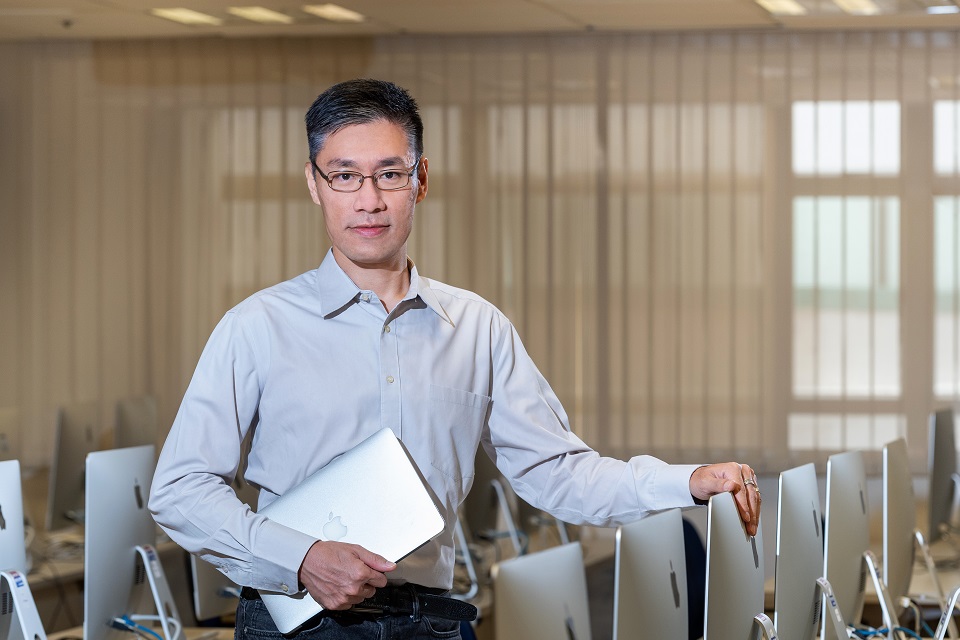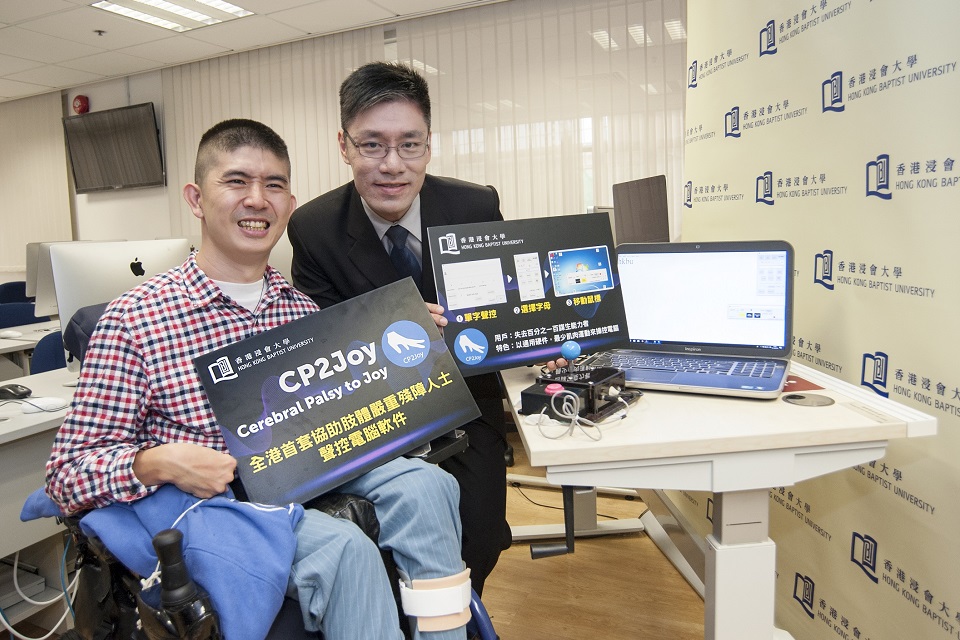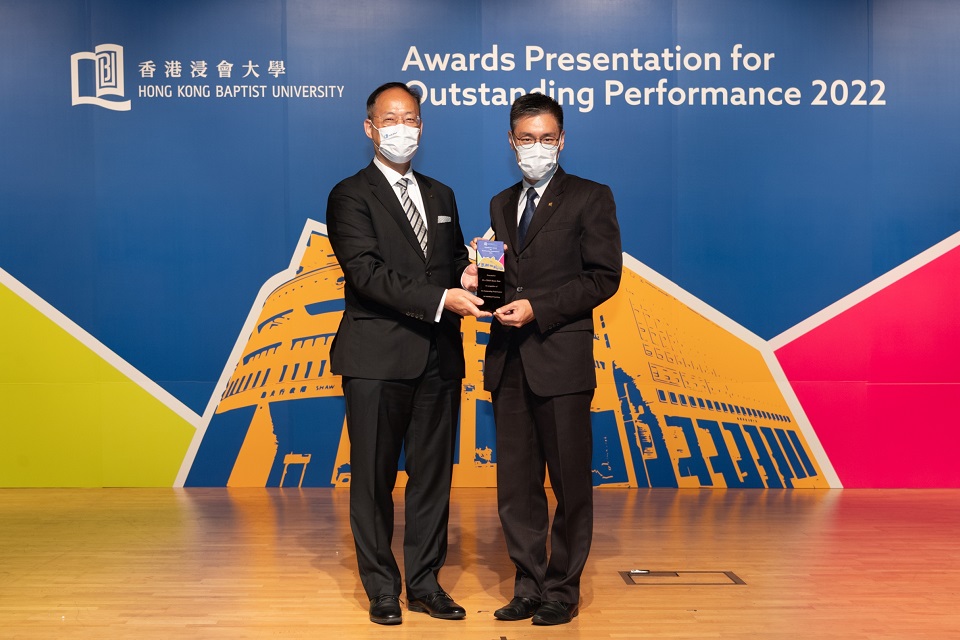Discover HKBU
Teaching by doing
28 Jul 2022
The teaching technique “learning by doing” centres around the idea that we can learn more about something when we perform the action. While educators study and discuss how to best incorporate the technique into the classroom environment, the process comes rather naturally to Dr Byron Choi, Associate Head and Associate Professor of the Department of Computer Science.
“I teach by doing, and students learn by doing,” Dr Choi says of his pragmatic teaching philosophy. In his class, instead of writing a final paper, students incorporate their personal interests into their assignments and choose their own project topics. Instead of struggling with the fear of failure, students learn that they don’t need to be afraid of failing and they can learn from their mistakes to improve themselves.
From guiding undergraduates to grasp theoretical concepts to helping postgraduates achieve their research goals, Dr Choi has gone to great lengths to motivate students to learn and help them achieve positive academic outcomes. His effective and caring teaching has also received recognition, as he recently won the President’s Award for Outstanding Performance in Individual Teaching at HKBU.
Passion makes the difference
For many students, studying Computer Science and mastering how to programme are challenging endeavours. Dr Choi understands this, and he often encourages his students to explore their interests and connect what they are learning to their personal lives, as this helps make the learning process enjoyable and relevant.
He says, “When you’re working on a project based on a topic that interests you, it can automatically motivate you to overcome obstacles and drive you to move forward.” He talks about a final-year project developed by a student who was inspired by the typical experience HKBU students have of getting takeaways from Kowloon City. The student developed a mobile application for group buying food delivery. The resulting product was launched faster and it was more interesting than a lot of the food delivery applications currently on the market. “By implementing the computing techniques they’ve learnt in projects that are linked to their passions, the students become more enthusiastic about learning,” says Dr Choi.
Helping students achieve their goals
Dr Choi believes that students should make use of their time in university to pursue what they’re deeply interested in, and as a teacher, he sees it as his role to help them by providing them with the knowledge to achieve their goals.
His work with research postgraduates embodies his learner-centric teaching approach. He has supervised a Master of Science in Advanced Information Systems student, Cheung Sai-ho, who was born with cerebral palsy, a disorder caused by brain damage that affects speech and muscle movement. Knowing that it was Sai-ho’s dream to narrow the digital divide for people with severe disabilities, Dr Choi guided him to develop voice-controlled computer software. The human-computer interface created in the project is the first for severely disabled people in Hong Kong, and it was awarded funding from the Social Innovation and Entrepreneur Development Fund (SIE Fund), which is supported by the Government.
“I was impressed by how various units in the University worked together to make the launch of Sai-ho’s entrepreneurial project possible. Colleagues from the School of Business helped him prepare the proposal for applying for funding from the SIE Fund, while other units addressed issues that ranged from adapting classroom environments to applying for a patent,” Dr Choi says. “Students studying Information Systems and Analytics also helped Sai-ho with his project, including the development of a website and database, as part of their service-learning initiatives.”
Giving back through knowledge sharing
After finishing a master’s and a doctoral degree at the University of Pennsylvania in the US, and working as a research associate in Edinburgh in Scotland, Dr Choi was an Assistant Professor at the Nanyang Technological University in Singapore before joining HKBU in 2008. He is well acquainted with the challenges that early career researchers face, as well as the particular struggles that international scholars have to deal with due to being far away from home and the familiar. As a generous person at heart, he often mentors students who aspire to pursue a career in research and he shares his personal experience with them.
What keeps Dr Choi motivated and committed to science and research is the desire to contribute his knowledge to bring interesting and impactful changes to people’s lives. To this day, the same passion still drives him to develop new ideas and solutions, and along the way, he has found collaborators who are pursuing mutually fascinating and beneficial research. He has recently worked with Professor Cheah Kok-wai, Chair Professor of the Department of Physics, and Professor Chung Pak-kwong of the Department of Sport, Physical Education and Health, to develop a novel solution which can improve personal health monitoring systems.
In this transdisciplinary project, the researchers have designed a more accurate way to measure heart rate and blood oxygen levels for personal health monitoring sensors. Based on the information collected from the sensors, Dr Choi and his team have conducted a time series analysis, which indexes a sequence of data inputs collected over a period of time in order to extract meaningful information. The researchers then classified the users’ movements, and this, in turn, enables monitoring devices to identify health irregularities. “This project has the potential to provide low-cost and effective health monitoring for long-term patients that require round-the-clock health monitoring,” says Dr Choi.
His ultimate goal is to translate research ideas into real-life tools or applications. “I have always wanted to turn my ideas into reality and develop innovations that can improve people’s lives, I consider it a worthwhile thing to do,” he says. “Although my research niche is a specialist area within the field of computer science, there are still lots of ways to contribute, create new knowledge and implement change, and that keeps me going.”


